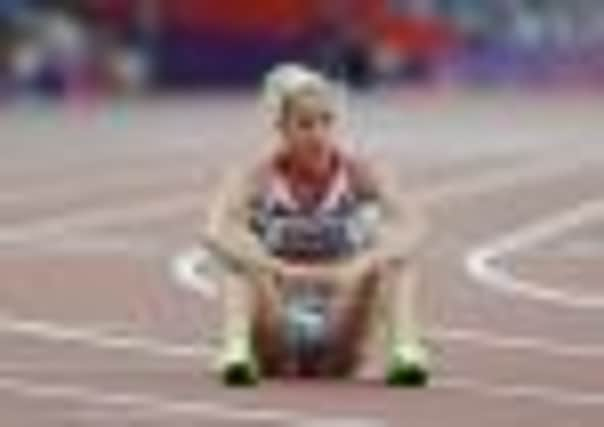London 2012 Olympics: Lynsey Sharp sorrow key to future success, says athletics chief


Further down the athletics ‘food chain’, there is a deep desire to build on the London 2012 feelgood factor by drawing more people into the sport and retaining them beyond the Commonwealth Games of Glasgow 2014.
There were five Scottish women involved in athletics at the Olympics – with that representation an early mirror on what unfolded in terms of focus on females in global sport.
Advertisement
Hide AdAdvertisement
Hide AdMarathon runner Freya Murray, a late replacement for Paula Radcliffe, was the best performer of three British women in that event. Sharp, Lee McConnell and Eilidh Child all made semi-finals in their individual events, while McConnell and Child qualified for the 4x400m relay final with Team GB. Eilish McColgan, UK champion at 21, dropped out after her 3,000m heat.
“If there is one single thing from the Olympic Games which pleased me in Scottish terms then it would be Lynsey Sharp’s attitude to her semi-final run,” said Holl. “Lynsey was very frustrated and disappointed with her own performance and tactics and that was a real sign that she is striving to keep raising the bar. She dearly wanted a personal best in a championship and we’d like to see that kind of attitude replicated across the board by our athletes at any age.”
Sharp was actually rated the slowest in PB terms in her 800m semi-final on paper and then beat one of the eight athletes. She was duly ranked 21st out of 24 runners in the semi-finals. As she put it herself on Twitter: “I’m an Olympic semi-finalist – that’s not bad.”
Now the ‘Legacy’ battle begins across the country and Scottish Athletics are already firmly involved in their club development programme entitled Club Legacy 2014 designed to help Scotland’s 150 or so athletics clubs grow over the next few years in partnership with schools, councils and other related bodies.
Holl added: “The next two years are very important as we head towards the Commonwealth Games. We’ve already started some time ago with our comprehensive development programme entitled Club Legacy 2014. That has included the appointment of Club Together Officers at 17 clubs in Scotland – part-time people working a few hours a week on the issue of attracting more members and volunteers and coaches into athletics.
“We’ve already seen that start to work in only the first few months. I’m excited and encouraged about the impact post-London 2012. But we must be able to build on that and, with a lot of hard work, I am certain we can. Three main priorities would be development and participation, more competition and improved elite performance.
“Growing the numbers at all age-groups and strands of the sport is the first goal we’d like to see happen. That means more people taking part in athletics at any level. Ideally, we want to drive people from schools into clubs and retain them for life.
“Secondly, we would like to see greater competition. We’ve had increases in entrants for our championships at national level over the past year or so and are working hard to persuade athletes to compete more often. Athletics clubs should be so much more than a ‘social club’ where kids are dropped off, babysat and never take part in any meeting. It is about involvement and engagement.”